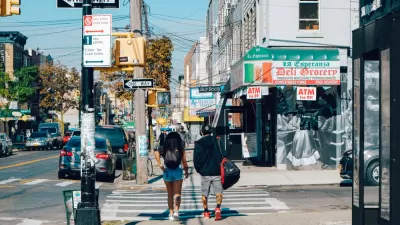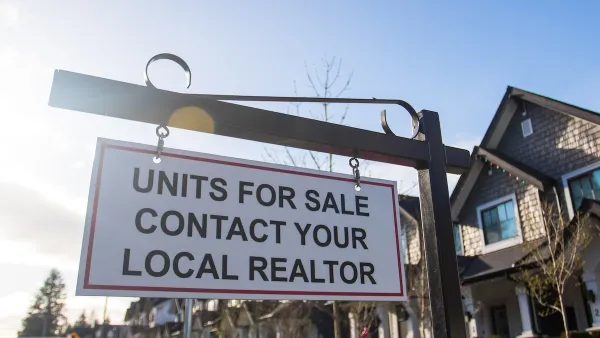Matthew Yglesias diagnoses a common predicament facing many urban communities: the fear that improving living conditions is a bad thing.
Spurred by reports of a recent debate over the impacts of development in D.C. that discussed opposition to the larger, amorphous effect of a project (such as increased home values in the surrounding area), rather than the merits of a particular project, Yglesias laments the influence on urban politics of such a position (which he labels "gentrificationphobia").
"'Your policies will improve quality of life in my community' should
never be a complaint about a policy initiative," says Yglesias. "And ultimately there's
no way to build a better society based on fear of improved living
conditions."
He argues that "[t]he fact that these fears exist and have some rational basis
is a great example of the deep problems induced by undersupply of urban
housing. Not only is it bad for affordability, but it creates a
perverse political economy in which people worry that improved
conditions will be deleterious to their personal living standards. If
your city's politics is dominated by gentrificationphobia it becomes
very difficult to make progress on any other concrete problem."
FULL STORY: Gentrificationphobia

Maui's Vacation Rental Debate Turns Ugly
Verbal attacks, misinformation campaigns and fistfights plague a high-stakes debate to convert thousands of vacation rentals into long-term housing.

Planetizen Federal Action Tracker
A weekly monitor of how Trump’s orders and actions are impacting planners and planning in America.

In Urban Planning, AI Prompting Could be the New Design Thinking
Creativity has long been key to great urban design. What if we see AI as our new creative partner?

King County Supportive Housing Program Offers Hope for Unhoused Residents
The county is taking a ‘Housing First’ approach that prioritizes getting people into housing, then offering wraparound supportive services.

Researchers Use AI to Get Clearer Picture of US Housing
Analysts are using artificial intelligence to supercharge their research by allowing them to comb through data faster. Though these AI tools can be error prone, they save time and housing researchers are optimistic about the future.

Making Shared Micromobility More Inclusive
Cities and shared mobility system operators can do more to include people with disabilities in planning and operations, per a new report.
Urban Design for Planners 1: Software Tools
This six-course series explores essential urban design concepts using open source software and equips planners with the tools they need to participate fully in the urban design process.
Planning for Universal Design
Learn the tools for implementing Universal Design in planning regulations.
planning NEXT
Appalachian Highlands Housing Partners
Mpact (founded as Rail~Volution)
City of Camden Redevelopment Agency
City of Astoria
City of Portland
City of Laramie





























